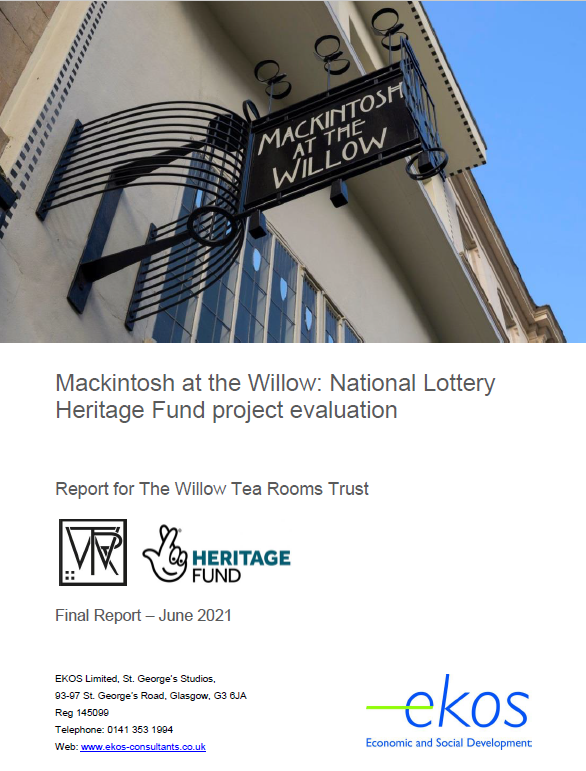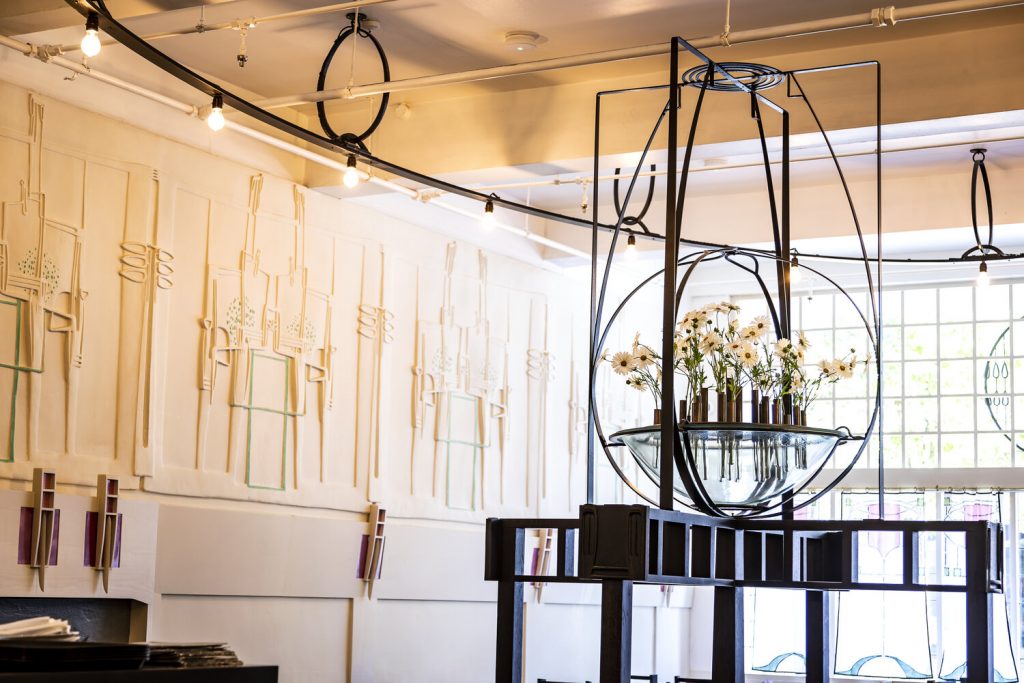
Around two years ago, EKOS was approached by a local charity, The Willow Tea Rooms Trust, to assist with putting together an evaluation of their impressive heritage restoration project, which had been ongoing since 2014. The Trust had been established with the aim of acquiring Miss Cranston’s Tea Rooms on Sauchiehall Street, Glasgow, aiming to preserve, recreate and share this important heritage asset.
The Tea Rooms have a rich history, having first opened in 1903. Catherine Cranston commissioned the now renowned Scottish architect Charles Rennie Mackintosh, along with his wife Margaret Macdonald, to design both the interior and exterior of the Tea Rooms. It is now the only surviving tea room designed in its entirety by Mackintosh.
More than one hundred years later, the building was under threat of forced sale and closure. The Willow Tea Rooms Trust, under the tutelage of Celia Sinclair, was able to step in and purchase the building in 2014, developing ambitious plans for a full restoration and associated education, training and community activity.
Over four years, a small and largely volunteer-based team was able to steer the complex restoration project to completion, with a handover and launch event held in time for the 150th anniversary of Mackintosh’s birth in June 2018. A phased opening took place over the rest of the year, with the Tea Rooms trading as Mackintosh at the Willow. The project received a vital contribution of around £3.8m from the National Lottery Heritage Fund, alongside support through private donations, charitable trusts and foundations, and public sources of finance.
The restoration has won acclaim from architecture and design experts, being recognised in a series of awards. Evidence gathered to inform the evaluation found that is highly popular with the visiting public, with a strong level of satisfaction across all aspects of the building, which alongside the restored Tea Rooms, includes an interactive exhibition, a shop, education and learning suite, and conference facilities. It is clear that the project is helping to bring new audiences to Charles Rennie Mackintosh, Margaret Macdonald, and its pioneering entrepreneur, Catherine Cranston.
The design team and artisan craftspeople involved with the project told us about the challenges with faithfully recreating Mackintosh’s original designs within a modern, workable environment – a challenge they were supported to overcome with the guidance of a Mackintosh Expert Advisory Panel, which was brought together to oversee the Mackintosh elements of the project. Alongside the restoration of heritage, the project has also had a strong commitment to developing skills and learning and encouraging public engagement with heritage. Notably, a partnership with The Princes Trust saw 19 young hospitality trainees gain permanent employment, while a large number of school students and adult learners have undertaken educational visits and workshops.
Applications for funding from the Heritage Fund are required to demonstrate how project aims will contribute to meeting the Fund’s strategic outcomes, and then to evaluate this contribution on project completion. Our recently completed report looks at each of the outcomes in turn – for heritage, people and communities – setting out what was acheived, what enabled this to happen, as well as any challenges that were experienced along the way.
Activity to support the evaluation included an initial workshop with members of the Trust, a review of the original project documentation, a review of information and data on project activity since the building opened, a survey undertaken with visitors to the Tea Rooms, and interviews with a range of internal and external stakeholders involved with different aspects of the project.



